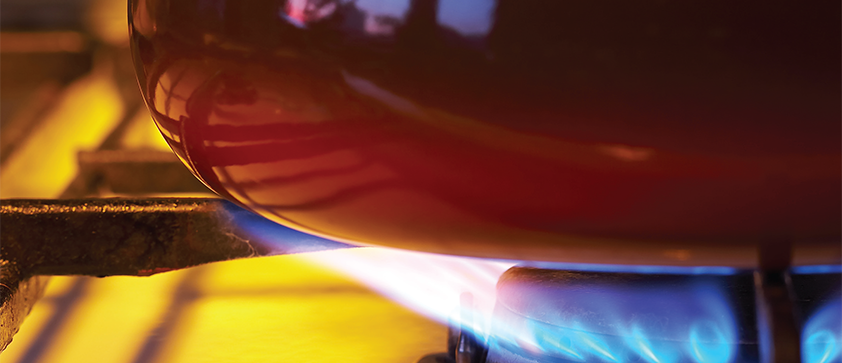
World LP Gas Association (WLPGA)
Fuelling the future
One hundred years ago, in 1912, Dr, William Snelling, a chemist in the state of Pennsylvania, first patented commercial propane. The year 2012 not only marks the centenary of this event, it also represents the silver anniversary of the World LP Gas Association (WLPGA).
As an organisation, the WLPGA continues to focus on its four key aims, which are to demonstrate the benefits of LP Gas, support the development of existing and potential markets, promote compliance with standards and safe practices, and identify innovation whilst transferring knowledge.
“The LP Gas industry today continues to be driven by all manner of environmental, economical and geopolitical events. However, what the WLPGA has also seen is a clear difference in trends between the developing and the developed world,” states Michael Kelly, director of market development and deputy managing director. “In developing nations the LP Gas market continues to experience growth, primarily due to the emergence of a new middle class that want access to a type of cooking fuel that really can change lives for the better. This growth is primarily coming from countries in Sub-Saharan Africa, Asia and parts of Latin America.
“Meanwhile, the trend having a biggest impact in developed nations like the US is the rise in shale gas, which is growing by leaps and bounds. What this is contributing towards is an increase in LPG product that is readily available, something that can cause prices to drop, thus having a direct impact on the industry.”
Examining the work of the WLPGA over recent months in closer detail, it does become abundantly clear that it is developing countries that hold the key to the industry’s future. Central to WLPGA making its presence known in these markets are its hosting of regional summits. Often characterised at focused, one-day events, these summits allow the association to meet with key decision makers in government and the private sector, and give the next generation of leadership within the LP Gas industry a tangible, concrete idea of what the WLPGA can deliver.
“In July 2011, the association brought such a summit to Nairobi, Kenya,” Michael continues. “This particular event turned out to be more successful then predicted and really underlined the regions’ thirst for modern fuels that can assist in meeting the aspirations of the population. East Africa is also home to a huge Indian diaspora that acts as a funnel for investment from the subcontinent, so it really is an area that provides a huge opportunity to LP Gas businesses.”
As successful as its regional summits have proven, the jewel in the crown for the WLPGA is the running of the annual World LP Gas Forum, the most significant event in the industry calendar: “Like the association itself, the Forum will this year be celebrating its silver anniversary as it returns to Bali following a very successful event there in 1996,” explains marketing and communications director, Alison Abbott. “It is here that one of the issues being discussed will be the significance of Indonesia to the recent expansion of the LP Gas market, where an incredibly successful kerosene-to-LP Gas conversion programme has led to more than 50 million households becoming new LP Gas consumers in three years.
“The theme for this year’s event is ‘Energy For All’, a concept that ties in with 2012 being the United Nations ‘year of sustainable energy for all’. Like in previous years the World Forum will combine a significant exhibition with a high level conference, events that are open to all and will see the entire industry making its presence known, taking the advantage to reach out to the international market and create new business in the process.”
This year’s Forum will also mark the official launch of a new campaign the association has launched called ‘Cooking for Life’. A subsidiary of its ‘Exceptional Energy’ brand, its primary mission will be to introduce this concept to developing countries.
“Soft-launched at the recent UN Rio +20 summit, ‘Cooking for Life’ has been specifically designed to communicate the benefits of switching from traditional fuels to LP Gas, not just from an economic standpoint, but also a health care approach,” Michael highlights. “To date the association has five countries targeted for this campaign and is hopeful of announcing a partnership with the World Bank’s Africa Clean Cooking Initiative (ACCI) in Bali as part of its launch.”
Clearly the centre of gravity within the LP Gas industry is in the process of a gradual shift away from the developed markets in the Western world and towards the Eastern and Southern hemispheres: “A real change is underway at present, with economic growth and political clout moving to cities like Beijing, Brasília and Delhi, and the WLPGA fully expects this to continue,” Michael highlights. “While technological advances represent the best potential source of growth in the developed world, developing nations are actively striving to gain access to clean forms of energy.
“Easy to roll out, boasting a smaller infrastructure footprint and requiring minimal research and development investment, unlike the majority of renewable energy sources, LP Gas is a mature, proven technology that is easily accessible to all. It is because of this that the WLPGA can confidently state that it offers the best immediate solution to the energy needs of the developing world.”
World LP Gas Association (WLPGA)
Services: Promotion of LP Gas use